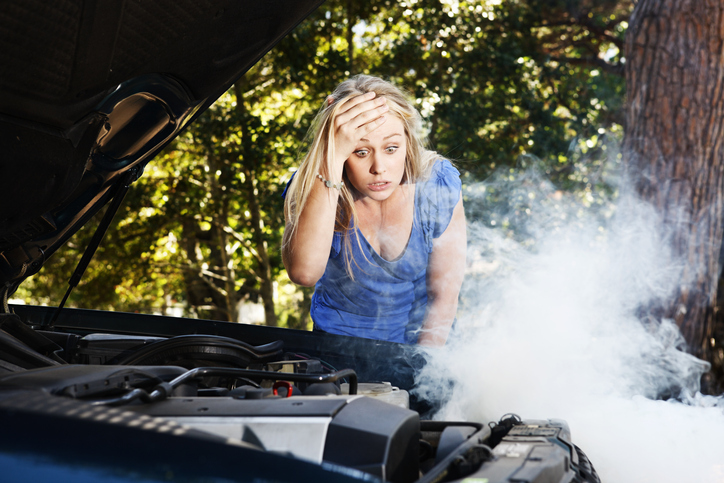
Overheating Engine: Why It Happens and What To Do If Your Car Is Overheating
May 30, 2022 12:00 amIt is frustrating and scary to see smoke coming from underneath the hood of your car as you are driving. Engines can overheat and can result in permanent damage if the necessary precautions are not taken. If you are dealing with an engine overheating, you need to understand why it is happening and what you can do about it.
Engine Overheating & Cooling System
It is essential to understand the engine’s cooling system before getting into possible reasons why an engine may overheat. The cooling system is responsible for keeping a standard operating temperature for the engine by circulating antifreeze, or coolant, through the engine and radiator. By doing this, heat is pulled away from the engine.
When the heat generated is above the normal operating temperature, the devices designed to cool the engine may start to fail, leading to permanent damage to the engine, gaskets, hoses, and seals responsible for keeping the engine going.
Many things can cause an engine to overheat, such as:
- Cooling system leaks
- Blocked hoses from corrosion and mineral deposits
- Radiator issues
- Broken water pumps
However, regular vehicle inspections could help avoid overheating issues in the future, and if you do need auto repair services then give us a call right away.
Reasons Why an Engine Overheats
Many things can cause an engine to overheat, and many things can act as a quick fix, such as refilling the antifreeze. However, other issues can become more permanent if they are not taken care of by a professional.
Not Enough or No Coolant
It is important that you check the proper levels of coolant/antifreeze in your engine. If coolant levels are lower than what is recommended, you can refill the levels with new antifreeze. If you are unsure where the coolant reservoir is located, you should refer to your vehicle owner’s manual.
Cooling System Leaks
A potential leak can cause an empty coolant reservoir tank. Coolant leaks can be identified by puddles or spots on the ground. However, watch out for the smell, since it will be sweet and orange, blue, or green in color, depending on the type of coolant being used.
Broken Water Pump
The responsibility of the water pump is to circulate the coolant throughout the engine. If the coolant has too much buildup or is dirty, it can prevent the coolant from moving through the pump, which can cause the engine to overheat.
Radiator Issues
Both fans and radiators help reduce heat from the engine by reducing coolant temperatures. Fan issues may cause the radiator to be unable to perform its job, resulting in unnatural temperature increases.
Oil Levels Too Low
A vehicle’s motor oil helps control the temperature overall besides keeping parts of the engine lubricated. Oil levels that are too low may increase the temperature of the engine.
Plugged Heater Core
Coolant flow may come to a halt if the engine’s heat exchanger unit is blocked or clogged. This, in turn, can result in a vehicle’s engine overheating.
Categorised in: Vehicle Repairs
This post was written by admin

Comments are closed here.